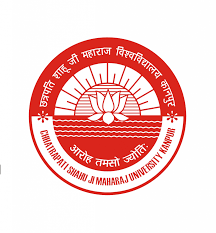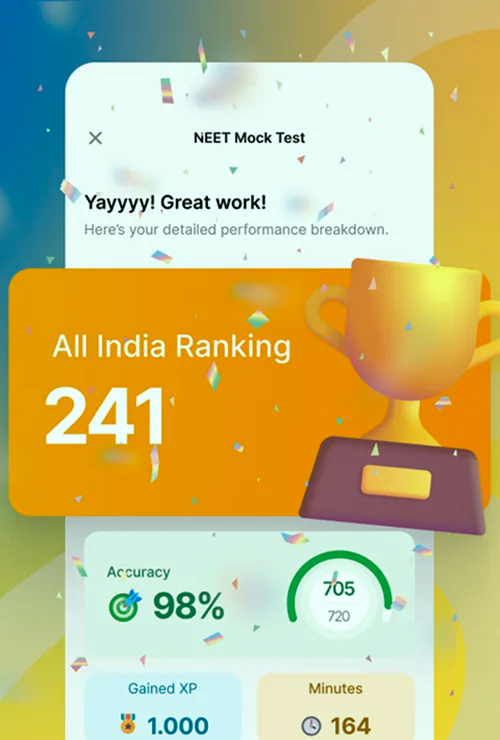General Information
Chhatrapati Shahu Ji Maharaj University, widely known as CSJMU or simply Kanpur University, is a significant public State University. Its roots go back to 1966 when it was established as Kanpur University. It was later renamed to honor the social reformer Chhatrapati Shahu Ji Maharaj.
As one of the largest universities in Asia, its primary role is vast. It serves as a major teaching university with numerous departments and institutes offering courses directly on its sprawling campus. Simultaneously, it functions as a massive affiliating university, providing academic governance to hundreds of colleges across Kanpur and a vast number of surrounding districts in Uttar Pradesh.
Key Recognitions:
Fully recognized by the University Grants Commission (UGC) under Section 12(B).
Accredited by the National Assessment and Accreditation Council (NAAC) with an 'A' Grade (previously 'B++,' recently upgraded).
Holds approvals for its professional programs from relevant bodies like AICTE (Engineering, Management, Pharmacy, etc.), NCTE (Education), BCI (Law), and PCI (Pharmacy).
Campus Facilities
The Campus: An Expansive Green Oasis
CSJMU's main campus is a landmark in Kanpur.
Location: Situated in the Kalyanpur area of Kanpur, Uttar Pradesh.
Campus Size & Feel: It's known for its exceptionally large and green campus, spread over 264 acres. The environment is generally spacious and academic.
Infrastructure & Facilities: The campus hosts a wide array of facilities needed for a large university:
Central Library: A substantial library with a vast collection of books, journals, e-resources, and reading halls.
Departmental Libraries: Supplementing the central resources within various faculties.
Academic & Administrative Blocks: Numerous buildings housing different departments, institutes, faculties, and administrative offices.
Laboratories: Well-equipped labs for Science, Engineering, Pharmacy, Computer Science, Life Sciences, Biotechnology, etc.
Auditorium & Seminar Halls: Multiple venues, including a large auditorium, for conferences, events, and cultural programs.
Sports Complex: Comprehensive sports infrastructure including stadiums, playgrounds for various outdoor games, courts, and potentially indoor facilities/gymnasium.
Health Centre: An on-campus facility providing basic medical services to students and staff.
Residential Facilities: Extensive hostels for students and residential quarters for faculty and staff.
Other Amenities: Bank branches, ATMs, Post Office, Computer Centre, Guest House, Cafeterias.
Hospital & Medical Facilities
Leading tertiary care hospital attached to the institution
Healthcare Connection: Medical Wing
CSJMU has an associated entity for health sciences, but its scope needs clarification.
Institute of Health Sciences: The university runs an Institute of Health Sciences on campus.
MBBS/Hospital: However, CSJMU does not operate its own full-fledged Medical College for MBBS degrees or a large, general public teaching hospital like dedicated medical universities (e.g., KGMU). Medical colleges in the Kanpur region (like GSVM Medical College) are typically affiliated with Atal Bihari Vajpayee Medical University (ABVMU), Lucknow for MBBS degrees.
Health Science Courses Offered: CSJMU, through its Institute of Health Sciences or affiliated colleges, offers programs like B.Pharm, D.Pharm, BPT (Physiotherapy), BMLT, potentially other paramedical diplomas/degrees, and M.Pharm. It leverages these programs with practical training potentially arranged at associated local hospitals or its own specialized labs/clinics.
Fee Structure
State University Affordability
Fee Structure: State University Affordability
City Details
Hostel & Mess
Living on Campus: Hostel Life
CSJMU provides substantial residential facilities for students enrolled in its on-campus programs.
Availability: Yes, the university has numerous separate hostels for boys and girls located within its large campus. Allotment is usually based on merit and distance, and demand often exceeds supply.
Facilities: The hostels offer furnished rooms (mostly shared occupancy), common rooms with TV and recreational facilities, mess halls, 24/7 security, resident wardens, and basic amenities. Wi-Fi availability might vary.
Mess: Food is served through the hostel messes, offering regular meals at scheduled times. The quality and menu are typically standard for large state university messes.
Cost: Being a state university, the combined cost for hostel accommodation and basic mess food is generally very economical. Expect the annual charges to be quite affordable, likely in the range of ₹20,000 - ₹40,000 (Needs confirmation from hostel office), making it a cost-effective option for outstation students.
Miscellaneous
Admissions & Career Outlook: Entry & Exit
Getting Accepted:
B.Tech: Admission to UIET is primarily through JEE (Main) rank via UPTAC counselling.
MBA/MCA: Generally through state-level entrance exams (like UPCET/CUET-PG) followed by university counselling.
Law (LLB / BA LLB): Usually via the university's own entrance test. Check for CUET score acceptance.
B.Pharm: Through state-level entrance (UPCET/CUET-UG) or university tests.
B.Ed: Strictly through the UP B.Ed. Joint Entrance Examination (JEE B.Ed.).
Most other UG/PG (On Campus): Increasingly relies on CUET-UG and CUET-PG scores followed by university counselling.
Affiliated Colleges (UG/PG): Admissions heavily depend on merit in the qualifying exam (Class 12/Graduation). Students typically register online via the CSJMU portal, and then merit lists/counselling are managed at the college level based on university guidelines. Always refer to the official CSJMU admission notification for the specific year's process.
Career Prospects (Placements): CSJMU has a central placement cell, and individual institutes (like UIET, School of Business Management) actively pursue placements.
Focus: Placement drives are most prominent for professional courses like B.Tech, MBA, MCA, and B.Pharm.
Recruiters: A mix of IT companies (TCS, Wipro, Infosys, HCL often visit for B.Tech/MCA), manufacturing firms, banks, pharmaceutical companies, educational institutions, and various other organizations recruit from the campus.
Salary Reality: Placement rates and packages vary. While some students from Engineering and Management secure good offers, the average package often falls within the ₹3 LPA to ₹5.5 LPA range. A significant portion of graduates, especially from traditional streams and affiliated colleges, pursue government jobs, further studies (PG/Research), or teaching careers.
Information for NRI Candidates
Regarding admissions for Non-Resident Indian (NRI) students at CSJMU:
General Policy: As a traditional State University, CSJMU typically does not have a dedicated, reserved NRI quota for its standard government-aided programs. The admission process prioritizes UP domicile candidates, followed by All-India eligibility (where applicable, e.g., JEE Main), and standard constitutional reservations (SC/ST/OBC/EWS).
Self-Financed / Supernumerary Options: There's a possibility that specific self-financed courses offered directly by the university might have provisions for admitting NRI/Foreign Nationals, potentially on supernumerary seats (extra seats beyond the normal intake). This usually involves significantly higher fees.
Recommendation: The standard admission pathways (JEE Main, CUET, State Entrance Tests) are the norm. There isn't a widely advertised specific channel for NRI admissions. The most reliable approach is to directly contact the CSJMU admission office or the concerned department/institute. Inquire about the specific course you're interested in and ask if any mechanism exists for NRI admissions, along with the detailed eligibility, documentation requirements, admission procedure, and the applicable fee structure.
Collage Images Gallery
Facilities & Campus Life
Well-equipped Library
Experienced Faculty
Computer Lab
Sports Activities
Heritage Campus
Frequently Asked Questions
Why Consult With Us?
- 15+ years of experience in medical education counseling
- 5000+ students successfully guided
- 50+ partner universities worldwide
- Free initial consultation with no obligation














